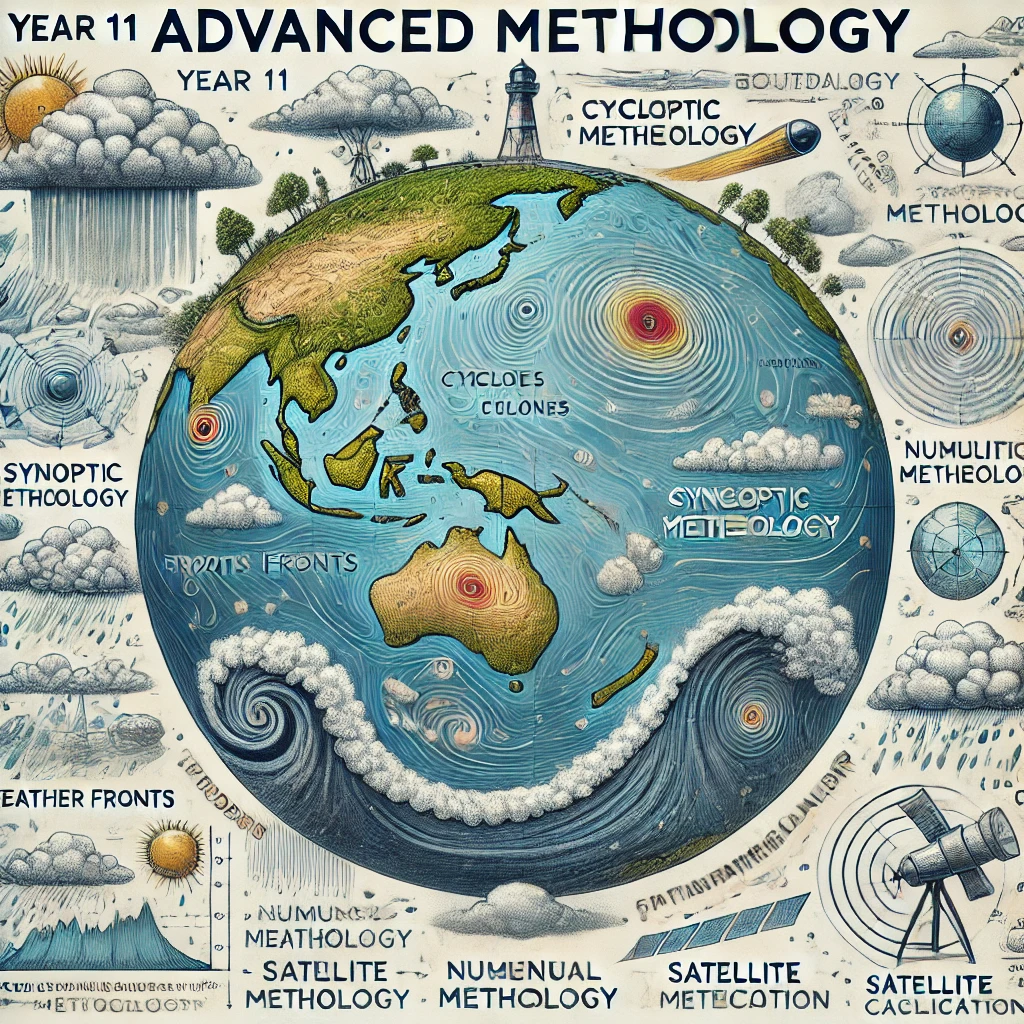Advanced Meteorology: Year 11

About Course
Course Overview: Dive into the intricacies of meteorology in Year 11! Explore the science behind weather forecasting, climate change, and atmospheric phenomena. Engage in hands-on experiments and data analysis to deepen your understanding of meteorological processes.
Course Content
Lesson 1: Weather Fronts and Cyclones
-
Weather Fronts and Cyclones
Lesson 2: Synoptic Meteorology
Lesson 3: Numerical Weather Prediction
Lesson 4: Satellite and Radar Applications
Lesson 5: Climate Classification
Lesson 6: Anthropogenic Climate Change
Lesson 7: Severe Thunderstorms and Tornadoes
Lesson 8: Tropical Cyclone Dynamics and Forecasting
Lesson 9: Atmospheric Optics and Weather Phenomena
Lesson 10: Atmospheric Waves and Tides
Lesson 11: Climate Modeling and Projections
Lesson 12: Meteorological Research Projects
Student Ratings & Reviews

No Review Yet